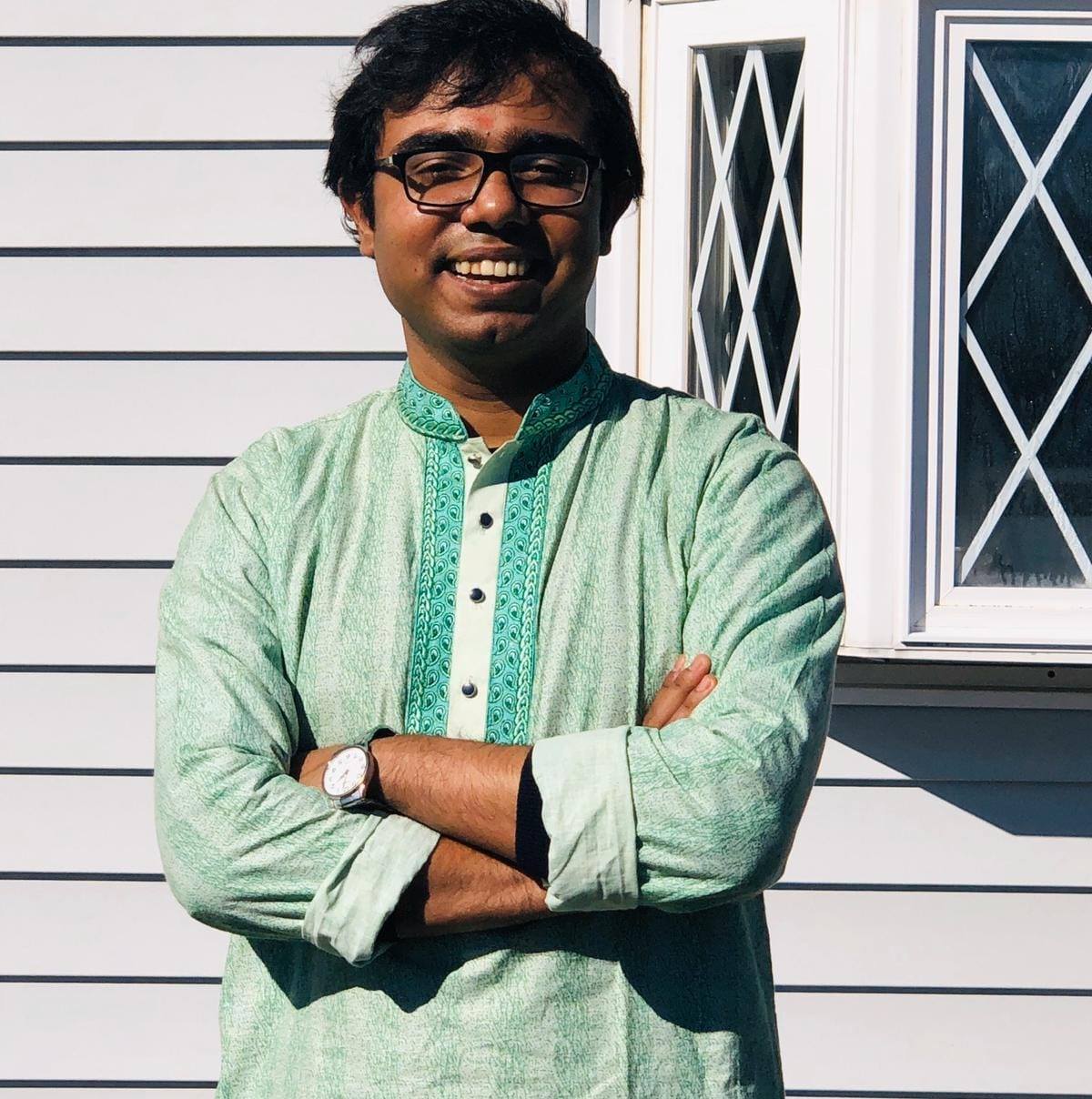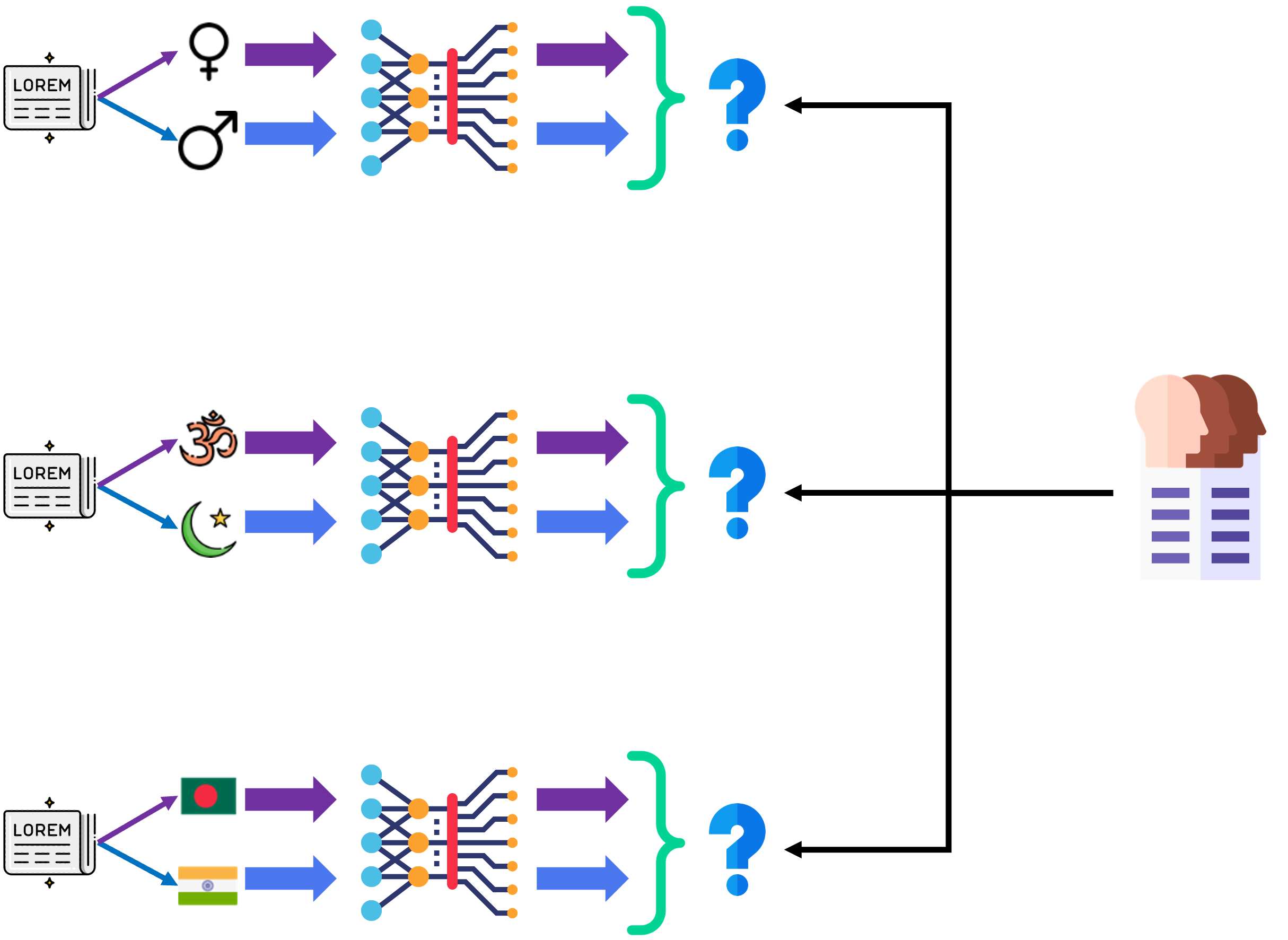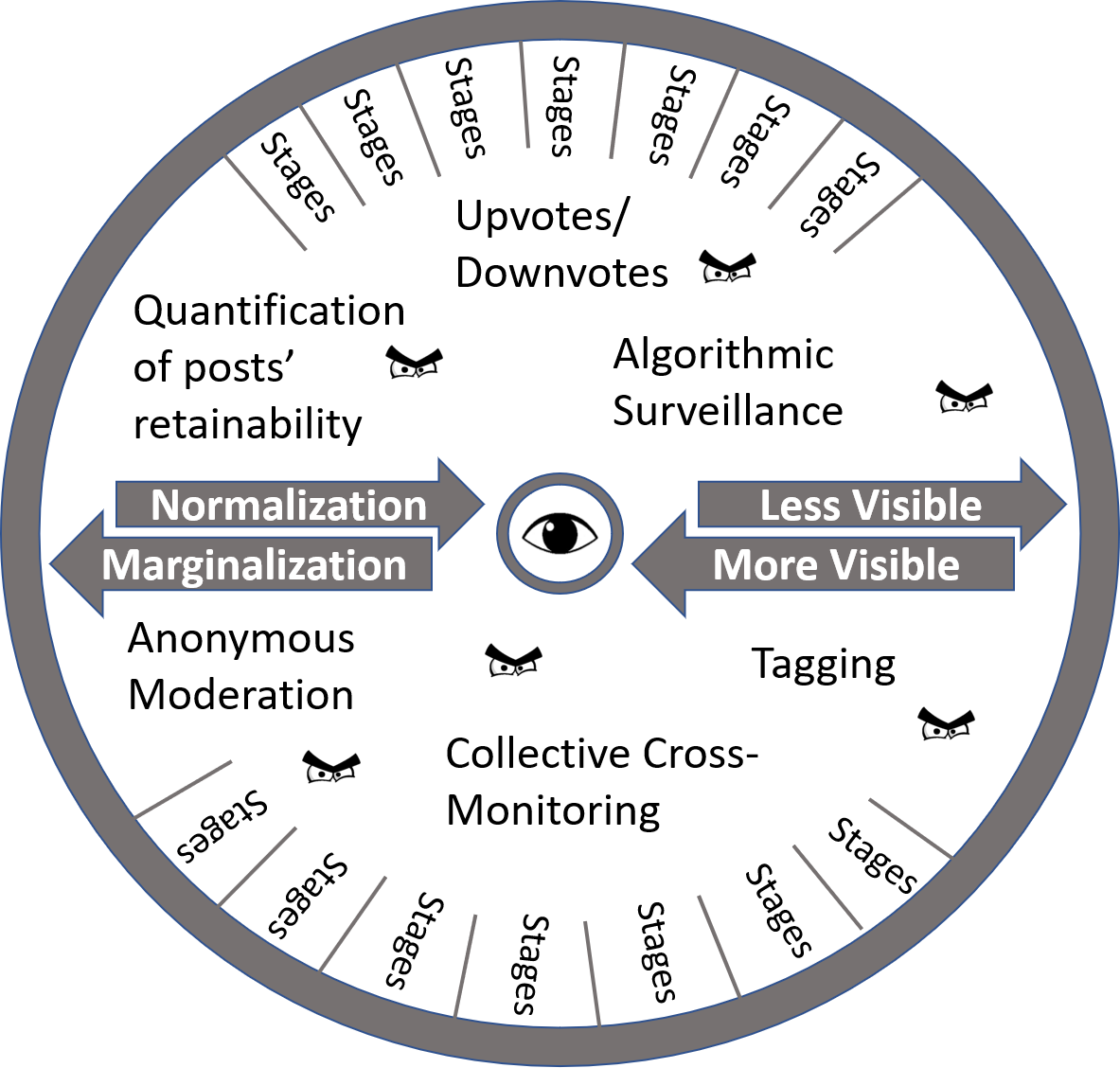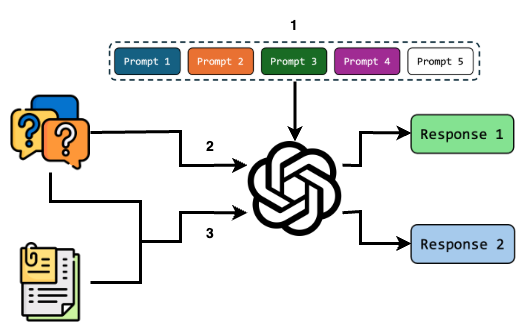Dipto Das

Dip-toh (Dipto) Daash (Das). Dipto means bright in Bengali. Play the audio below to listen to the pronunciation of my name.
Spelling in Bengali: দীপ্ত দাস
Pronouns: He/him/his
I am currently on the job market for 2025-26, seeking opportunities as a Tenure-Track Assistant Professor or as a UX Researcher!
I am a postdoctoral fellow in the Department of Computer Science (also affiliated with the iSchool) at the University of Toronto, where I work with Dr. Syed Ishtiaque Ahmed and Dr. Shion Guha. My research examines the sociotechnical impacts and bias of algorithmic systems and AI infrastructures—including language models, moderation tools, and platform algorithms—to better understand how they shape discourse, civic identity, and access to information, particularly in low-resource and the Global South contexts. My goal is to advance theory and inform the design of accountable, context-aware, and responsible algorithmic systems. Drawing on my training in computer science, information science, and human-computer interaction, I take a mixed-methods and participatory approach to study algorithmic bias, governance policy, and ethics. My research spans three interconnected streams: (1) Algorithmic fairness and bias in sociotechnical systems, (2) Culture, discourse, and power in global digital platforms, and (3) Community-driven approaches to interactive and ethical AI. My work has been published in top computing venues, such as ACM CHI and ACM CSCW, among others, and has received multiple Best Paper Honorable Mention Awards. My work and practice have been featured in prominent press and media outlets, such as the Atlantic, Prothom Alo, ACM Crossroads, and Princeton University Press. My researh has been supported by competitive funding from the Institute for Pandemics and National Science Foundation.
Before beginning my postdoctoral work, I completed my PhD and MS in Information Science from the University of Colorado Boulder, where I worked with Dr. Bryan Semaan. Previously, I obtained an MS in Computer Science from Missouri State University and a BSEngg in Computer Science and Engineering from Bangladesh University of Engineering & Technology. I also have experience with independent industry consulting and over seven years of teaching experience across universities in the US, Canada, and Bangladesh (see details below).
In my free time, I find joy in sharing meaningful moments with friends and family and studying mythologies. I also enjoy sketching and photography, often capturing moments from my travels. Cooking is another passion of mine as a way to experience different cultures.




- Received postdoctoral fellowship from Institute for Pandemics at the University of Toronto!
- Invited talk at the University of Michigan.
- Our paper on datafication of care got an honorable mention CHI 2025!
- Two papers have been accepted to CHI 2025!
- Papers on a civic-oriented approach to moderating hate speech against Indigenous communities got accepted at ICTD 2024!
- I've started working as a postdoctoral fellow at the University of Toronto!
- Papers on transnational decolonial discourse related to nationalism on YouTube got accepted at CSCW 2024!
- Freshly minted Dr. Dipto Das here — I've successfully defended my PhD dissertation!
- Got Excellence Awards for Teaching and Contributions to Diversity, Equity, and Inclusion from CU Boulder GPSG!
- Got Award of Excellence for Outstanding Research from CU Boulder INFO!
- Papers on religious minority communities' experiences with fear on social media got accepted at CSCW 2024!
- The Prothom Alo (Bangladesh's most circulated daily) has featured me in an article.
- Got a travel grant from CU Boulder GPSG.
- Papers on identity bias in NLP tools got accepted at CHI 2024!
- The Atlantic has recently quoted me in an article about Quora.
Research

Algorithmic fairness and bias in sociotechnical systems
I examine how AI and platform pipelines—spanning large language models, moderation infrastructures, and downstream decision systems—encode identity-based harms. My work combines algorithmic audits, dataset curation, and culturally grounded evaluation to surface failure modes that standard benchmarks miss, especially in low-resource languages (e.g., Bengali) and the Global South contexts. I analyze how data provenance, annotation rationales, developer positionality, and infrastructural choices shape what counts as "fair," producing diagnostic frameworks and actionable guidance for accountable deployment.

Culture, discourse, and power in global digital platforms
I study how governance rules, recommendation logics, and moderation workflows configure civic identity, narrative agency, and visibility. Using trace ethnography, interviews, and computational analyses across platforms, such as Quora, YouTube, and Facebook, I document tactics communities use to resist epistemic erasure and negotiate precarity. The findings translate into policy-aware design recommendations and regionally grounded safety interventions that protect marginalized voices and broaden participation beyond Western paradigms.

Community-driven approaches to interactive and ethical AI
I co-design models, tools, and evaluation pipelines with affected communities to center their epistemic perspectives toward restorative justice. This work includes sociolinguistic and affect-aware modeling and retrieval-augmented systems that support interpretive accountability in moderation and knowledge curation. Through participatory annotation and mixed-methods validation, I deliver datasets, protocols, and deployable tools that align technical performance with community needs and the lived realities of users.
Publications
Please refer to my Google Scholar page for a full list with citations.
-
Dipto Das, Achhiya Sultana, Ankit Singh Chauhan, Saadia Binte Alam, Mohammad Shidujaman, Sunandan Chakraborty, and Syed Ishtiaque Ahmed. Can LLM-based Content Moderation Identify Insensitive Speech toward Indigenous Ethnic and Religious Minorities?. Submitted.
-
Dipto Das, Shion Guha, and Bryan Semaan. How do datasets, developers, and models affect biases in a low-resourced language?. Submitted.
-
Dipto Das, Afrin Prio, Pritu Saha, Shion Guha, and Syed Ishtiaque Ahmed. 2026. How do the Global South Diasporas Mobilize for Transnational Political Change?. In Proceedings of ACM CHI Conference on Human Factors in Computing Systems (CHI '26).
-
Dipto Das, Syed Ishtiaque Ahmed, and Shion Guha. 2025. Auditing Political Bias in Text Generation by GPT-4 using Sociocultural and Demographic Personas: Case of Bengali Ethnolinguistic Communities. In Proceedings of Workshop on Benchmarks, Harmonization, Annotation, and Standardization for Human-Centric AI in Indian Languages at the International Joint Conference on Natural Language Processing & Asia-Pacific Chapter of the Association for Computational Linguistics (IJCNLP/AACL-BHASHA '25').
-
Dipto Das, Syed Ishtiaque Ahmed, and Shion Guha. 2025. BTPD: A Multilingual Hand-curated Dataset of Bengali Transnational Political Discourse Across Online Communities. In ACM Conference on Computer Supported Cooperative Work and Social Computing (CSCW '25).
-
Morgan Klaus Scheuerman, Katy Weathington, Adrian Petterson, Dylan Thomas Doyle, Dipto Das, Michael Ann DeVito, and Jed R. Brubaker. 2025. Transphobia is in the Eye of the Prompter: Trans-Centered Perspectives on Large Language Models. In ACM Transactions on Computer-Human Interaction (TOCHI).
-
Ben Zefeng Zhang, Dipto Das, and Bryan Semaan. 2025. Identity Alignment and the Sociotechnical Mechanisms of Reconfiguring Emotional Labor in Transnational Gig Education Platforms. In Computer Supported Cooperative Work: The Journal of Collaborative Computing and Work Practices (JCSCW).
-
Divyanshu Kumar Singh, Dipto Das, and Bryan Semaan. 2025. The Power of Language: Resisting Western Heteropatriarchal Normative Writing Standards. In Proceedings of ACM CHI Conference on Human Factors in Computing Systems (CHI '25).
-
Erina Seh-Young Moon, Devansh Saxena, Dipto Das, and Shion Guha. 2025. The Datafication of Care in Public Homelessness Services. In Proceedings of ACM CHI Conference on Human Factors in Computing Systems (CHI '25).
Best Paper Honorable Mention -
Ananya Bhattacharjee, Mohammad Rashidujjaman Rifat, Dipto Das, S M Taiabul Haque, and Syed Ishtiaque Ahmed. 2025. Residual Mobilities and Religious Practices: Exploring the Experiences of the Hindu Migrants in Canada. In Proceedings of the ACM on Human-Computer Interaction: ACM Conference On Computer-Supported Cooperative Work And Social Computing (PACMHCI: CSCW '25).
-
Achhiya Sultana*, Dipto Das*, Saadia Binte Alam, Mohammad Shidujaman, and Syed Ishtiaque Ahmed. 2024. A Civics-Oriented Approach to Understanding Intersectionally Marginalized Users' Experience with Hate Speech Online. In Proceedings of International Conference on Information & Communication Technologies and Development (ICTD '24). * Equal contribution, student author is put first.
-
Dipto Das, Dhwani Gandhi, and Bryan Semaan. 2024. Reimagining Communities through Transnational Decolonial Discourse: The Case of Online Video-Mediated Platforms. In Proceedings of the ACM on Human-Computer Interaction: ACM Conference On Computer-Supported Cooperative Work And Social Computing (PACMHCI: CSCW '24).
-
Mohammad Rashidujjaman Rifat*, Dipto Das*, Arpon Podder, Mahiratul Jannat, Robert Soden, Bryan Semaan, and Syed Ishtiaque Ahmed. 2024. The Politics of Fear and the Experience of Bangladeshi Religious Minority Communities Using Social Media Platforms. In Proceedings of the ACM on Human-Computer Interaction: ACM Conference On Computer-Supported Cooperative Work And Social Computing (PACMHCI: CSCW '24). * Equal contribution.
-
Dipto Das, Shion Guha, Jed Brubaker, and Bryan Semaan. 2024. The "Colonial Impulse" of Natural Language Processing: An Audit of Bengali Sentiment Analysis Tools and Their Identity-based Biases. In Proceedings of ACM CHI Conference on Human Factors in Computing Systems (CHI '24).
-
Ben Zefeng Zhang, Dipto Das, and Bryan Semaan. 2024. Identity Alignment and the Sociotechnical Reconfigurations of Emotional Labor in Transnational Gig-education Platforms. In Quadrennial joint meeting of the European Association for the Study of Science and Technology and the Society for Social Studies of Science (EASST-4S '24).
-
Mohammad Rashidujjaman Rifat, Dipto Das, Dylan Thomas Doyle, Nusrat Jahan Mim, Zaidat Ibrahim, Sharifa Sultana, C. Estelle Smith, Jed Brubaker, Robert Soden, and Syed Ishtiaque Ahmed. 2024. Religion, faith and spirituality, secularism, disciplinary paradigms. In Northeast HCI Meeting (Northeast HCI '24).
-
Louisa Kayah Williams, Rayan Awad Alim, Reem Talhouk, Marisol Wong-Villacres, Lynn Kirabo Hixon, Carleen Maitland, Tajanae Harris, Vishal Sharma, Dipto Das, Bryan Semaan, Syed Ishtiaque Ahmed, and Robert Soden. 2024. HCI, Mobility Justice, and Migration in the Face of Climate Crisis. In ACM Computer Supported Cooperative Work and Social Computing (CSCW '24).
-
Dipto Das, Shion Guha, and Bryan Semaan. 2023. Toward Cultural Bias Evaluation Datasets: The Case of Bengali Gender, Religious, and National Identity. In Proceedings of Workshop on Cross-Cultural Considerations in NLP at the European Chapter of the Association for Computational Linguistics (EACL-C3NLP '23).
-
Dipto Das. 2023. Studying Multi-dimensional Marginalization of Identity from Decolonial and Postcolonial Perspectives. In ACM Conference on Computer Supported Cooperative Work and Social Computing (CSCW '23). [Doctoral Consortium]
-
Dipto Das. 2023. Decolonization through Technology and Decolonization of Technology. In ACM International Conference on Supporting Group Work (GROUP '23). [Doctoral Consortium]
-
Dipto Das, Parboti Roy, Carlos Toxtli-Hernández, Kagonya Awori, Morgan Vigil-Hayes, Monojit Choudhury, Neha Kumar, Syed Ishtiaque Ahmed, and Bryan Semaan. 2023. Conceptualizing Indigeneity in Social Computing. In ACM Computer Supported Cooperative Work and Social Computing (CSCW '23).
-
Mohammad Rashidujjaman Rifat, Ayesha Bhimdiwala, Ananya Bhattacharjee, Amna Batool, Dipto Das, Nusrat Jahan Mim, Abdullah Hasan Safir, Sharifa Sultana, Taslima Akter, C. Estelle Smith, Bryan Semaan, Shaimaa Lazem, Michael Muller, Robert Soden, and Syed Ishtiaque Ahmed. 2023. Many Worlds of Ethics: Ethical Pluralism in CSCW. In ACM Computer Supported Cooperative Work and Social Computing (CSCW '23).
-
Vikram Kamath Cannanure, Delvin Varghese, Cuauhtemoc Rivera-Loaiza, Faria Noor, Dipto Das, Pranjal Jain, Meiyin Chang, Marisol Wong-Villacres, Naveena Karusala, Nova Ahmed, Sarina C Till, Bernard Ijesunor Akhigbe, Melissa Densmore, Susan Dray, Christian Sturm, and Neha Kumar. 2023. HCI Across Borders: Towards Global Solidarity. In ACM CHI Conference on Human Factors in Computing Systems (CHI '23).
-
Dipto Das and Bryan Semaan. 2022. Collaborative Identity Decolonization as Reclaiming Narrative Agency: Identity Work of Bengali Communities on Quora. In Proceedings of ACM CHI Conference on Human Factors in Computing Systems (CHI '22).
-
Dipto Das, A.K.M. Najmul Islam, S M Taiabul Haque, Jukka Vuorinen, and Syed Ishtiaque Ahmed. 2022. Understanding the Strategies and Practices of Facebook Microcelebrities for Engaging in Sociopolitical Discourses. In Proceedings of International Conference on Information and Communication Technologies and Development (ICTD '22).
-
Dipto Das and Bryan Semaan. 2022. Decolonial and Postcolonial Computing Research: A Scientometric Exploration. In ACM Conference on Computer Supported Cooperative Work and Social Computing (CSCW '22).
-
Dipto Das, Arpon Podder, and Bryan Semaan. 2022. A Sociomaterial Perspective on Trace Data Collection: Strategies for Democratizing and Limiting Bias. In ACM SIGCAS/SIGCHI Conference on Computing and Sustainable Societies (COMPASS '22).
-
Dipto Das, Malay Bhattacharyya, Laura S. Gaytan-Lugo, Ebtisam Alabdulqader, and Nova Ahmed. 2022. Importance of Digital Profile Pictures on Social Media Perceived by Different Groups. In ACM SIGCAS/SIGCHI Conference on Computing and Sustainable Societies (COMPASS '22).
-
Joshua Introne, Dipto Das, Akit Kumar, and Lizhen Liang. 2022. Mapping Belief Landscapes in Social Media. In International Conference on Computational Social Science (IC2S2 '22).
-
Vikram Kamath Cannanure, Naveena Karusala, Cuauhtemoc Rivera-Loaiza, Annu Sible Prabhakar, Rama Adithya Varanasi, Anupriya Tuli, Dilrukshi Gamage, Faria Noor, David Nemer, Dipto Das, Susan Dray, Christian Sturm, and Neha Kumar. 2022. HCI Across Borders: Navigating Shifting Borders at CHI. In ACM CHI Conference on Human Factors in Computing Systems (CHI '22).
-
Dipto Das, Carsten Østerlund, and Bryan Semaan. 2021. "Jol" or "Pani"?: How Does Governance Shape a Platform's Identity? In Proceedings of the ACM on Human-Computer Interaction: ACM Conference On Computer-Supported Cooperative Work And Social Computing (PACMHCI: CSCW '21).
Best Paper Honorable Mention Contribution to Diversity and Inclusion -
Abdul Kawsar Tushar, Iffat Jahan Antara, Dipto Das, Priyank Chandra, Tanjir Rashid Soron, Md Munirul Haque, Sheikh Iqbal Ahamed, and Syed Ishtiaque Ahmed. 2020. We Need More Power to Stand Up: Designing to Combat Stigmatization of the Caregivers of Children with Autism in Urban Bangladesh. In Proceedings of International Conference on Information and Communication Technologies and Development (ICTD '20).
-
Dipto Das and Bryan Semaan. 2020. quoras: A Python API for Quora Data Collection to Increase Multi-Language Social Science Research. In ACM Conference on Computer Supported Cooperative Work and Social Computing (CSCW '20).
-
Dipto Das and Anthony J. Clark. 2019. Satire vs Fake News: You Can Tell by the Way They Say It. In Proceedings of IEEE International Conference on Transdisciplinary AI (TransAI '19).
-
Dipto Das and Anthony J. Clark. 2019. Construct of Sarcasm on social media platform. In Proceedings of IEEE international conference on humanized computing and communication (HCC '19).
-
Dipto Das, Md. Forhad Hossain, and Anthony J. Clark. 2019. Understanding the Attention Model of Humans in Sarcastic Videos. In IEEE International Conference on Transdisciplinary AI (TransAI '19).
-
Mohammad Rashidujjaman Rifat, Dipto Das, Najmul Islam, and Syed Ishtiaque Ahmed. 2019. Microcelebrities in Bangladesh. In HCI Across Borders and Intersections Workshop at the ACM CHI Conference on Human Factors in Computing Systems (CHI-HCIxB '19).
-
Sk. Adnan Hassan, Dipto Das, Anindya Iqbal, Amiangshu Bosu, Rifat Shahriyar, and Toufique Ahmed. 2018. SOQDE: A Supervised Learning Based Question Difficulty Estimation Model for Stack Overflow In Proceedings of IEEE Asia-Pacific Software Engineering Conference (APSEC '18).
-
Hasan Shahid Ferdous, Dipto Das, and Farhana Murtaza Choudhury. 2018. Social Media Question Asking (SMQA): Whom Do We Tag and Why? In Proceedings of Australian Conference on Computer-Human Interaction (OzCHI '18).
-
Dipto Das and Anthony J. Clark. 2018. Sarcasm Detection on Flickr Using a CNN. In Proceedings of International Conference on Computing and Big Data (ICCBD '18).
-
Dipto Das and Anthony J. Clark. 2018. Sarcasm Detection on Facebook: A Supervised Learning Approach. In ACM International Conference on Multimodal Interaction (ICMI '18).
-
Md Fazlay Rabbi Masum Billah, Dipto Das, Imtiaz Karim, Shuha Nabila, and Arnob Paul. 2017. Cost-Efficient Smart Street Lighting System. In International Conference on Networking, Systems, and Security (NSysS '17).
-
Anurata Prabha Hridi, Dipto Das, Md Monowar Anjum, and Tanmay Das. 2016. Faster Evacuation after Disaster: Finding Alternative Routes Using Probable Human Behavior. In ACM SIGCAS Annual Symposium on Computing for Development (DEV '16).
Teaching
Beyond research, I am deeply committed to active learning-based pedagogy in science, technology, engineering, and mathematics (STEM) education, with more than seven years of experience in teaching courses on user-centered design, social computing, statistics, programming, and computational reasoning at universities across the US, Canada, and Bangladesh.
- Winter 2026: CSC 300: Computers and Society, University of Toronto
- Fall 2025: INFO 4609: User-Centered Design, University of Colorado Boulder
-
Spring 2025:
- INFO 2301: Quantitative Reasoning, University of Colorado Boulder
- INFO 1301: Statistics for Information Science, University of Colorado Boulder
-
Fall 2024:
- INFO 2301: Quantitative Reasoning, University of Colorado Boulder
- INFO 1301: Statistics for Information Science, University of Colorado Boulder
- Spring 2024: INFO 4609: User-Centered Design, University of Colorado Boulder
- Spring 2023: INFO 1301: Statistics for Information Science, University of Colorado Boulder
-
Fall 2017:
- CSE 401: Compiler Design, Dhaka International University
- CSE 301: Algorithm Design and Analysis, Dhaka International University
- CSE 209: Computer Organization and Architecture, Dhaka International University
- Fall 2023: INFO 1111: Understanding the World Through Data, University of Colorado Boulder
- Fall 2022: INFO 1301: Statistics for Information Science, University of Colorado Boulder
- Spring 2022: INFO 1201: Computational Reasoning, University of Colorado Boulder
- Fall 2021: INFO 1201: Computational Reasoning, University of Colorado Boulder
- Spring 2021: IST 300: Digital Platforms, Syracuse University
- Fall 2020: IST 421: Information Visualization, Syracuse University
- Spring 2020: IST 343: Data in Society, Syracuse University
- Fall 2019: IST 649: Human Interaction with Computers, Syracuse University
-
Spring 2019:
- CSC 130: The World of Computer Science, Missouri State University
- CSC 131: Computational Thinking, Missouri State University
- Fall 2018: CSC 130: The World of Computer Science, Missouri State University
- Spring 2018: CSC 131: Computational Thinking, Missouri State University
CV/Resume
Personal Interests
Plain and old pencil sketch is my go-to medium, but I do paint with acrylic and water color depending on the subject. Human figures with abstractions connecting those with social and cultural sentiments is what I often consider as the topic of my drawings. A series of five paintings I worked on during grad school was "Durga" depicting different ways divine feminine energy is culturally conceptualized in Bengal. Besides sketching, I love traveling to new places. Be that relaxing on the beach in the St. Martin's Island on a full moon light or hiking on high-altitude tracks in Colorado, I hum my favorite classical Bengali or American country music. You can check out my Soundcloud profile. With an interested group, I also enjoy telling or listening to stories. Of what kind? The time I was stuck in an airport for three days straight, or the time I sneaked out of house in middle school! Maybe, you can taste some of my recipes as we share those stories.

Contact
University of Toronto
Department of Computer Science
Room # 5166, Bahen Centre for Information Technology
40 Saint George Street, Toronto, ON M5S 2E4, Canada